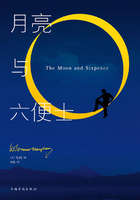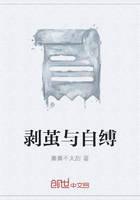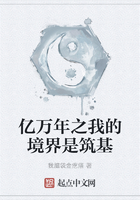Two days after, the sale was ended. It had produced 3.50,000 francs. The creditors divided among them two thirds, and the family, a sister and a grand-nephew, received the remainder.
The sister opened her eyes very wide when the lawyer wrote to her that she had inherited 50,000 francs. The girl had not seen her sister for six or seven years, and did not know what had become of her from the moment when she had disappeared from home. She came up to Paris in haste, and great was the astonishment of those who had known Marguerite when they saw as her only heir a fine, fat country girl, who until then had never left her village. She had made the fortune at a single stroke, without even knowing the source of that fortune. She went back, I heard afterward, to her countryside, greatly saddened by her sister's death, but with a sadness which was somewhat lightened by the investment at four and a half per cent which she had been able to make.
All these circumstances, often repeated in Paris, the mother city of scandal, had begun to be forgotten, and I was even little by little forgetting the part I had taken in them, when a new incident brought to my knowledge the whole of Marguerite's life, and acquainted me with such pathetic details that I was taken with the idea of writing down the story which I now write.
The rooms, now emptied of all their furniture, had been to let for three or four days when one morning there was a ring at my door.
My servant, or, rather, my porter, who acted as my servant, went to the door and brought me a card, saying that the person who had given it to him wished to see me.
I glanced at the card and there read these two words: Armand Duval.
I tried to think where I had seen the name, and remembered the first leaf of the copy of Manon Lescaut. What could the person who had given the book to Marguerite want of me? I gave orders to ask him in at once.
I saw a young man, blond, tall, pale, dressed in a travelling suit which looked as if he had not changed it for some days, and had not even taken the trouble to brush it on arriving at Paris, for it was covered with dust.
M. Duval was deeply agitated; he made no attempt to conceal his agitation, and it was with tears in his eyes and a trembling voice that he said to me:
"Sir, I beg you to excuse my visit and my costume; but young people are not very ceremonious with one another, and I was so anxious to see you to-day that I have not even gone to the hotel to which I have sent my luggage, and have rushed straight here, fearing that, after all, I might miss you, early as it is."
I begged M. Duval to sit down by the fire; he did so, and, taking his handkerchief from his pocket, hid his face in it for a moment.
"You must be at a loss to understand," he went on, sighing sadly, "for what purpose an unknown visitor, at such an hour, in such a costume, and in tears, can have come to see you. I have simply come to ask of you a great service."
"Speak on, sir, I am entirely at your disposal."
"You were present at the sale of Marguerite Gautier?"
At this word the emotion, which he had got the better of for an instant, was too much for him, and he was obliged to cover his eyes with his hand.
"I must seem to you very absurd," he added, "but pardon me, and believe that I shall never forget the patience with which you have listened to me."
"Sir," I answered, "if the service which I can render you is able to lessen your trouble a little, tell me at once what I can do for you, and you will find me only too happy to oblige you."
M. Duval's sorrow was sympathetic, and in spite of myself I felt the desire of doing him a kindness. Thereupon he said to me:
"You bought something at Marguerite's sale?"
"Yes, a book."
"Manon Lescaut?"
"Precisely."
"Have you the book still?"
"It is in my bedroom."
On hearing this, Armand Duval seemed to be relieved of a great weight, and thanked me as if I had already rendered him a service merely by keeping the book.
I got up and went into my room to fetch the book, which I handed to him.
"That is it indeed," he said, looking at the inscription on the first page and turning over the leaves; "that is it in deed," and two big tears fell on the pages. "Well, sir," said he, lifting his head, and no longer trying to hide from me that he had wept and was even then on the point of weeping, "do you value this book very greatly?"
"Why?"
"Because I have come to ask you to give it up to me."
"Pardon my curiosity, but was it you, then, who gave it to Marguerite Gautier?"
"It was!"
"The book is yours, sir; take it back. I am happy to be able to hand it over to you."
"But," said M. Duval with some embarrassment, "the least I can do is to give you in return the price which you paid for it."
"Allow me to offer it to you. The price of a single volume in a sale of that kind is a mere nothing, and I do not remember how much I gave for it."
"You gave one hundred francs."
"True," I said, embarrassed in my turn, "how do you know?"
"It is quite simple. I hoped to reach Paris in time for the sale, and I only managed to get here this morning. I was absolutely resolved to have something which had belonged to her, and I hastened to the auctioneer and asked him to allow me to see the list of the things sold and of the buyers' names. I saw that this volume had been bought by you, and I decided to ask you to give it up to me, though the price you had set upon it made me fear that you might yourself have some souvenir in connection with the possession of the book."
As he spoke, it was evident that he was afraid I had known Marguerite as he had known her. I hastened to reassure him.
"I knew Mlle. Gautier only by sight," I said; "her death made on me the impression that the death of a pretty woman must always make on a young man who had liked seeing her. I wished to buy something at her sale, and I bid higher and higher for this book out of mere obstinacy and to annoy some one else, who was equally keen to obtain it, and who seemed to defy me to the contest. I repeat, then, that the book is yours, and once more I beg you to accept it; do not treat me as if I were an auctioneer, and let it be the pledge between us of a longer and more intimate acquaintance."
"Good," said Armand, holding out his hand and pressing mine; "I accept, and I shall be grateful to you all my life."
I was very anxious to question Armand on the subject of Marguerite, for the inscription in the book, the young man's hurried journey, his desire to possess the volume, piqued my curiosity; but I feared if I questioned my visitor that I might seem to have refused his money only in order to have the right to pry into his affairs.
It was as if he guessed my desire, for he said to me:
"Have you read the volume?"
"All through."
"What did you think of the two lines that I wrote in it?"
"I realized at once that the woman to whom you had given the volume must have been quite outside the ordinary category, for I could not take those two lines as a mere empty compliment."
"You were right. That woman was an angel. See, read this letter." And he handed to me a paper which seemed to have been many times reread.
I opened it, and this is what it contained:
MY DEAR ARMAND:
I have received your letter. You are still good, and I thank God for it. Yes, my friend, I am ill, and with one of those diseases that never relent; but the interest you still take in me makes my suffering less. I shall not live long enough, I expect, to have the happiness of pressing the hand which has written the kind letter I have just received; the words of it would be enough to cure me, if anything could cure me. I shall not see you, for I am quite near death, and you are hundreds of leagues away. My poor friend! your Marguerite of old times is sadly changed. It is better perhaps for you not to see her again than to see her as she is. You ask if I forgive you; oh, with all my heart, friend, for the way you hurt me was only a way of proving the love you had for me. I have been in bed for a month, and I think so much of your esteem that I write every day the journal of my life, from the moment we left each other to the moment when I shall be able to write no longer. If the interest you take in me is real, Armand, when you come back go and see Julie Duprat. She will give you my journal. You will find in it the reason and the excuse for what has passed between us. Julie is very good to me; we often talk of you together. She was there when your letter came, and we both cried over it.
If you had not sent me any word, I had told her to give you those papers when you returned to France. Do not thank me for it. This daily looking back on the only happy moments of my life does me an immense amount of good, and if you will find in reading it some excuse for the past. I, for my part, find a continual solace in it. I should like to leave you something which would always remind you of me, but everything here has been seized, and I have nothing of my own.
Do you understand, my friend? I am dying, and from my bed I can hear a man walking to and fro in the drawing-room; my creditors have put him there to see that nothing is taken away, and that nothing remains to me in case I do not die. I hope they will wait till the end before they begin to sell.
Oh, men have no pity! or rather, I am wrong, it is God who is just and inflexible!
And now, dear love, you will come to my sale, and you will buy something, for if I put aside the least thing for you, they might accuse you of embezzling seized goods.
It is a sad life that I am leaving!
It would be good of God to let me see you again before I die. According to all probability, good-bye, my friend. Pardon me if I do not write a longer letter, but those who say they are going to cure me wear me out with bloodletting, and my hand refuses to write any more.
MARGUERITE GAUTIER
The last two words were scarcely legible. I returned the letter to Armand, who had, no doubt, read it over again in his mind while I was reading it on paper, for he said to me as he took it:
"Who would think that a kept woman could have written that?" And, overcome by recollections, he gazed for some time at the writing of the letter, which he finally carried to his lips.
"And when I think," he went on, "that she died before I could see her, and that I shall never see her again, when I think that she did for me what no sister would ever have done, I can not forgive myself for having left her to die like that. Dead! Dead and thinking of me, writing and repeating my name, poor dear Marguerite!"
And Armand, giving free outlet to his thoughts and his tears, held out his hand to me, and continued:
"People would think it childish enough if they saw me lament like this over a dead woman such as she; no one will ever know what I made that woman suffer, how cruel I have been to her! how good, how resigned she was! I thought it was I who had to forgive her, and to-day I feel unworthy of the forgiveness which she grants me. Oh, I would give ten years of my life to weep at her feet for an hour!"
It is always difficult to console a sorrow that is unknown to one, and nevertheless I felt so lively a sympathy for the young man, he made me so frankly the confidant of his distress, that I believed a word from me would not be indifferent to him, and I said:
"Have you no parents, no friends? Hope. Go and see them; they will console you. As for me, I can only pity you."
"It is true," he said, rising and walking to and fro in the room, "I am wearying you. Pardon me, I did not reflect how little my sorrow must mean to you, and that I am intruding upon you something which can not and ought not to interest you at all."
"You mistake my meaning. I am entirely at your service; only I regret my inability to calm your distress. If my society and that of my friends can give you any distraction, if, in short, you have need of me, no matter in what way, I hope you will realize how much pleasure it will give me to do anything for you."
"Pardon, pardon," said he; "sorrow sharpens the sensations. Let me stay here for a few minutes longer, long enough to dry my eyes, so that the idlers in the street may not look upon it as a curiosity to see a big fellow like me crying. You have made me very happy by giving me this book. I do not know how I can ever express my gratitude to you."
"By giving me a little of your friendship," said I, "and by telling me the cause of your suffering. One feels better while telling what one suffers."
"You are right. But to-day I have too much need of tears; I can not very well talk. One day I will tell you the whole story, and you will see if I have reason for regretting the poor girl. And now," he added, rubbing his eyes for the last time, and looking at himself in the glass, "say that you do not think me too absolutely idiotic, and allow me to come back and see you another time."
He cast on me a gentle and amiable look. I was near embracing him. As for him, his eyes again began to fill with tears; he saw that I perceived it and turned away his head.
"Come," I said, "courage."
"Good-bye," he said.
And, making a desperate effort to restrain his tears, he rushed rather than went out of the room.
I lifted the curtain of my window, and saw him get into the cabriolet which awaited him at the door; but scarcely was he seated before he burst into tears and hid his face in his pocket-handkerchief.















